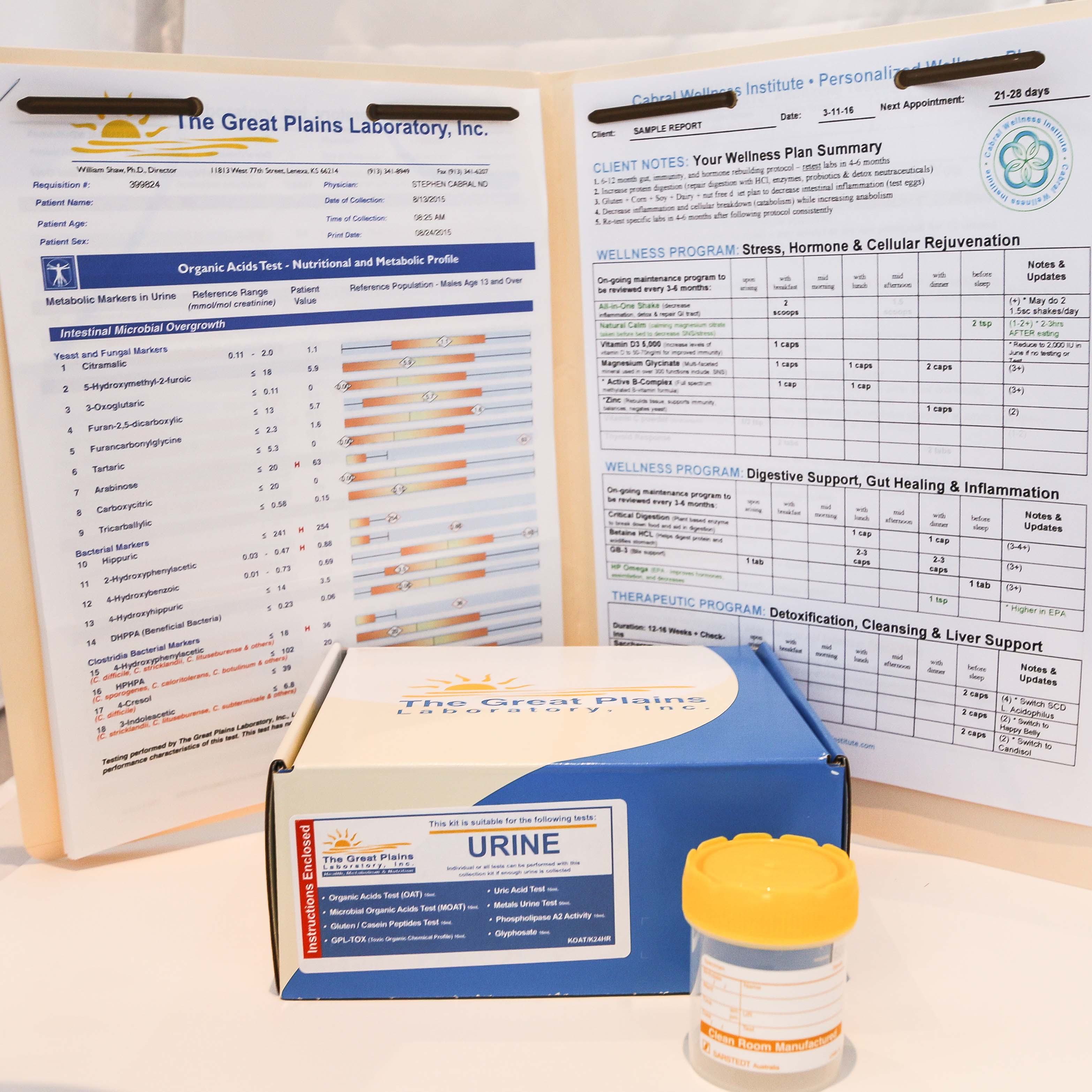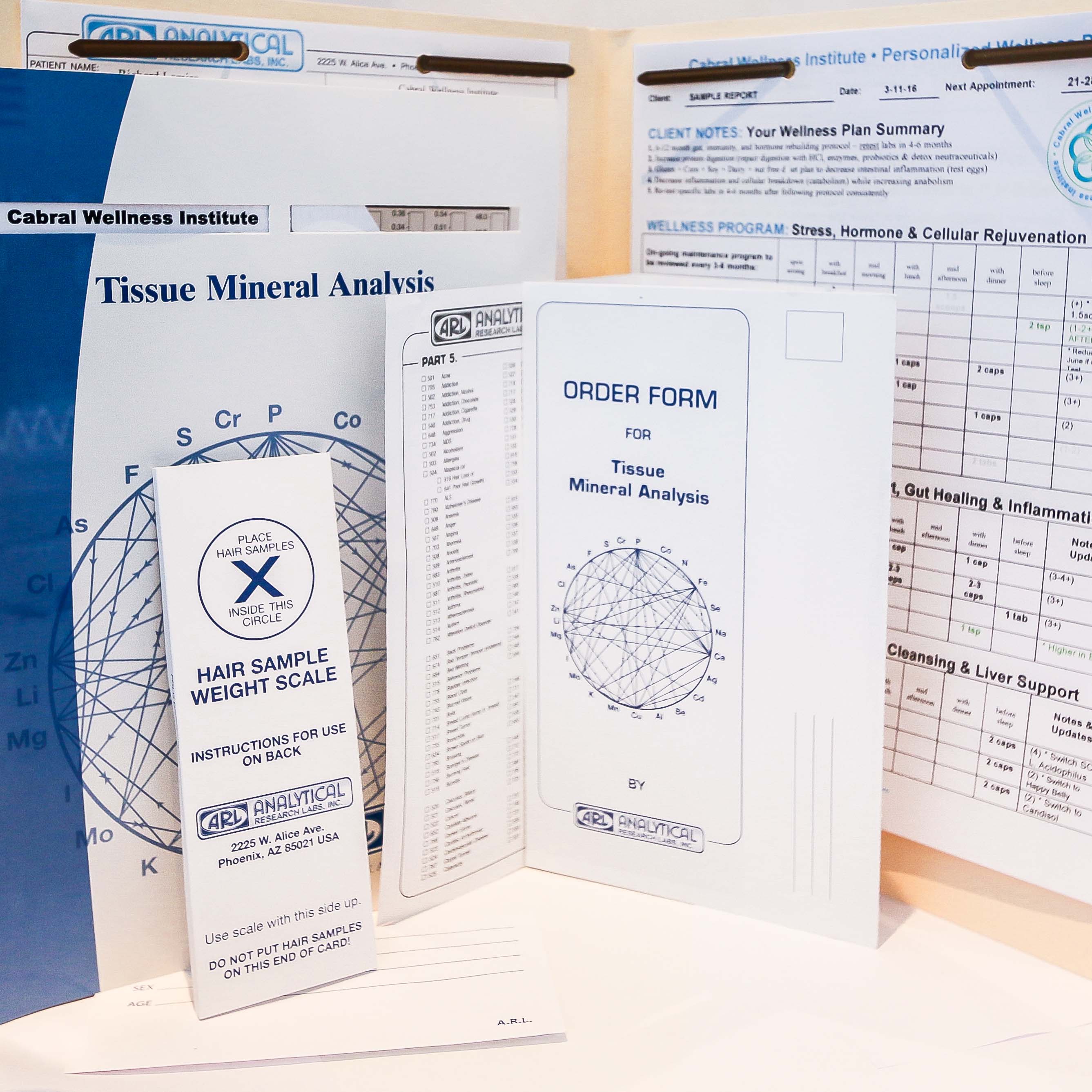Description
The annual blood work review can actually be done anytime you get back new or updated blood work from your PCP/MD, or if you decide to order your own blood work to be done. The company that Dr. Cabral recommends to run your own comprehensive lab work is:
Regardless of where you decide to have your labs run do look at the preferred lab links above to see the names and types of tests to request to be run on a 6-12 month basis. After you get your results back, Dr. Cabral will then review the PDF or email results you sent over (with full lab reference ranges).
Dr. Cabral will then explain what the lab values mean from an educational standpoint so that you can better understand your numbers and what they mean for your health. And, since you’ll be looking at them from a Functional Medicine perspective you’ll be able to see if you’re just within range, or if you’re optimal.
If you’re not within an optional range, you will then be given recommendations to go about improving your health from a Naturopathic and Functional Medicine perspective. This may include nutrition advice, specific supplementation, and lifestyle changes to improve overall health.
-
- Chemistry Panel (metabolic panel with lipids) – The cornerstone of any complete physical, the chemistry panel provides an array of markers to help assess cardiovascular risk, metabolic function, electrolyte status, minerals important for bone health, plus liver and kidney function.
-
- Complete Blood Count (CBC) – The CBC test evaluates three types of cells that circulate in the blood (red blood cells, white blood cells, and platelets). These markers can help to provide information regarding the immune system, possibility of an infection, blood disorder, nutritional deficiencies, your body’s ability to clot, and more.
-
- Free & Total Testosterone – Known as the feel-good hormone, testosterone helps maintain a man’s bone density, fat distribution, muscle strength, sex drive, mood, energy, sperm production, and more.
-
- Dehydroepiandrosterone sulfate (DHEA-S) – Produced primarily by the adrenal glands, DHEA is the most abundant steroid hormone in the human body. DHEA plays a fundamental role in hormone balance, as well as supporting one’s immune function, energy, mood, and maintenance of muscle and bone mass. Since orally administered DHEA is mostly converted to DHEA-S, coupled with the fact that DHEA-S levels are more stable in the blood than DHEA, measurement of DHEA-S is preferable to DHEA.
-
- Prostate Specific Antigen (PSA) – PSA is produced exclusively by cells of the prostate gland. Used in conjunction with a digital rectal examination, PSA is a useful screening test for benign prostate hyperplasia (BPH) and prostate cancer development.
-
- Estradiol (E2) – The primary female sex hormone, estradiol is a form of estrogen that is also present in males. In men, high levels of estradiol are associated with excessive abdominal fat, enlargement of the prostate, and increased cardiovascular risk. Conversely, levels that are too low are associated with osteoporosis.
-
- Homocysteine – Identified by Life Extension as 1 of 17 independent risk factors for cardiovascular disease, high homocysteine levels can directly damage the delicate endothelial cells that line the inside of arteries, resulting in vascular inflammation, arterial plaque rupture, and blood clot formation.
-
- C-reactive protein (High sensitivity) – CRP measures general levels of inflammation in your body, but cannot show where the inflammation is located or what is causing it. Uncontrolled, systemic inflammation places you at risk for many degenerative diseases like heart disease and stroke.
-
- TSH (Thyroid stimulating hormone) – TSH is produced by the pituitary gland, and stimulates your thyroid to produce thyroid hormones T3 and T4. TSH can be used to screen for thyroid disease and other thyroid imbalances.
-
- Vitamin D, 25-Hydroxy – Known as the sunshine vitamin, vitamin D is important to every cell and tissue throughout the body. From proper immune function and bone density to heart health and mood disorders, vitamin D is critical for optimal health.
-
- Hemoglobin A1C (HbA1C) – HbA1C shows the average level of blood sugar (glucose) over the previous 3 months. HbA1C is a useful indicator of how well blood glucose is being controlled, and is also used to monitor the effects of diet, exercise, and drug therapy in diabetic patients.



